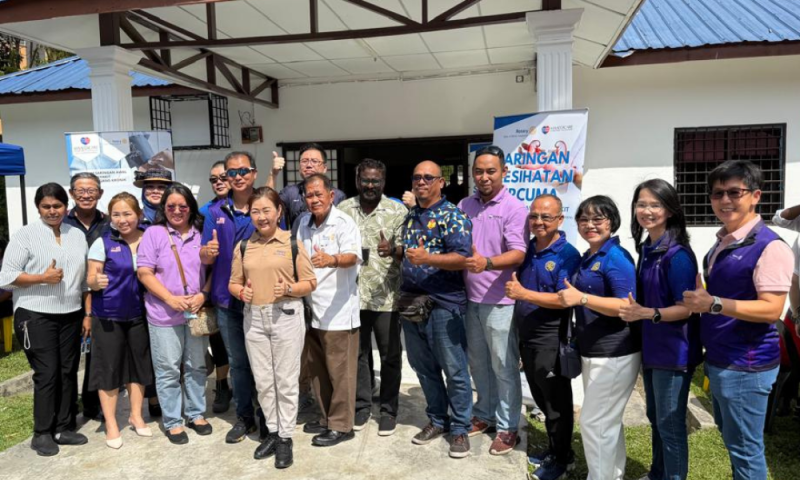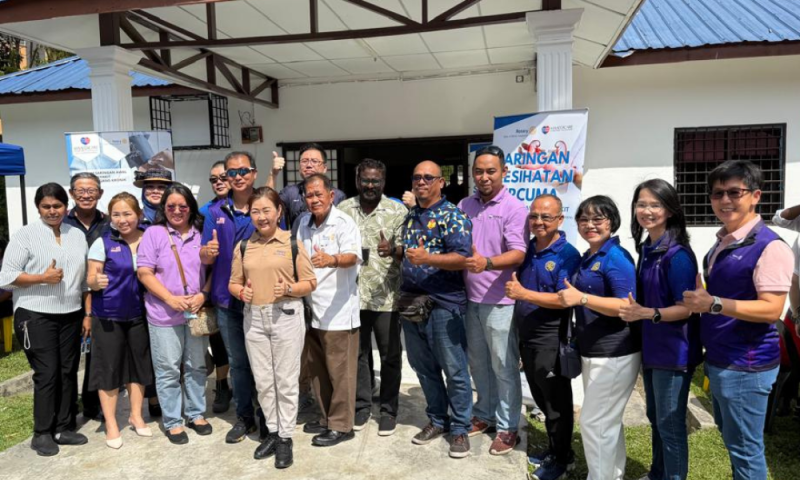
Published: Jul 3, 2025 10:49 AM
In a groundbreaking effort to confront Malaysia’s silent but escalating kidney health crisis among underserved communities, the Maaedicare Charitable Foundation, in partnership with the Rotary Club of Bukit Angkasa (RCBA), officially launched a comprehensive community renal health screening at Dewan Komuniti JKP Zon 18, Pandan Indah, Ampang, recently.
This landmark initiative marks a decisive step toward early detection and prevention by bringing vital kidney screening directly to those who need it most. The inaugural screening is the first in a series of proactive efforts dedicated to identifying chronic kidney disease early and managing its risk factors comprehensively.
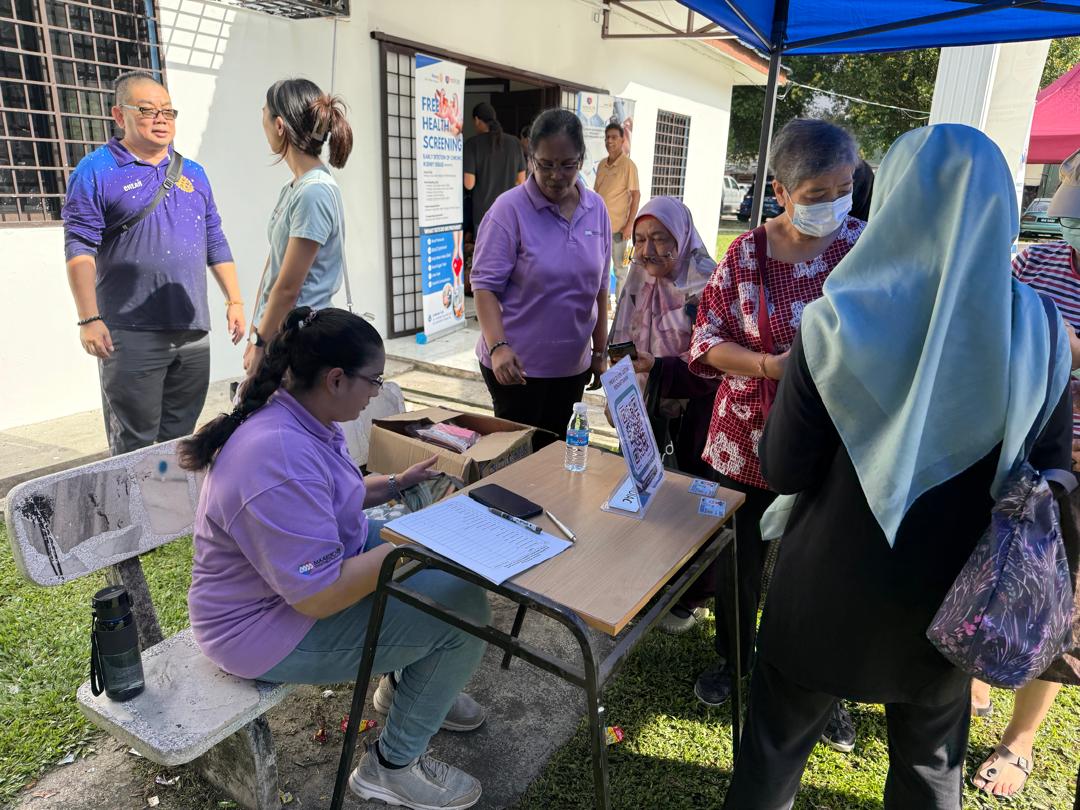
With a strong focus on preventive care, these community screenings aim to equip vulnerable populations with the knowledge and resources necessary to improve long-term kidney health outcomes and lessen the devastating impact of chronic kidney conditions. The initiative targets 3,000 individuals from the B40 income bracket over the next two years, extending screenings across urban and suburban communities nationwide.
Last week’s inaugural screening attracted 102 participants, with 75.5% from the B40 group and an average age of 54 years. Alarmingly, 22% showed decreased renal function, underscoring the hidden burden of kidney disease in these communities. Females made up 55% of attendees, highlighting the inclusive reach of the program.
Chief Executive Officer of Maaedicare Charitable Foundation, Ms. Anne Rajasaikaran, emphasised the critical role of early detection, explaining that chronic kidney disease often develops silently, with symptoms only appearing when treatment becomes complex and costly.
“Preventive screenings empower individuals—especially those in the B40 group—to take control of their health, enabling timely intervention that can save lives and significantly reduce healthcare expenses,” she said.
To illustrate the urgency, Ms. Anne Rajasaikaran shared that 70% of Maaedicare’s dialysis patients come from households earning less than RM3,000 a month, often supporting an average of five family members. In fact, 40% of these patients earn below RM900 monthly or are unemployed, highlighting the immense financial strain dialysis treatment places on already vulnerable families.
“This stark reality underscores the Foundation’s commitment to making kidney health screening accessible to all, and we aim to prevent such costly and life-altering conditions before they reach advanced stages,’’ she added.
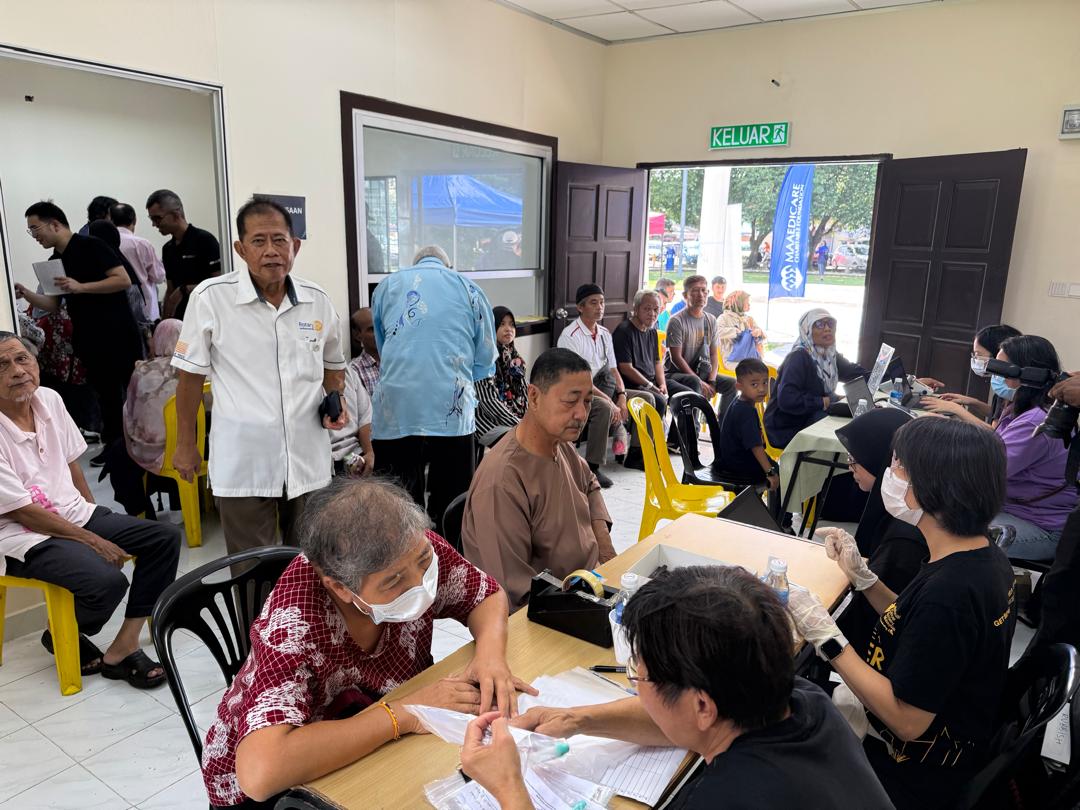
Charter President Yap Fatt Lam of the Rotary Club of Bukit Angkasa, highlighted that the partnership with Maaedicare goes far beyond a single event.
“This collaboration embodies a profound, ongoing commitment to building healthier communities through continuous support, education, and accessible healthcare services. Addressing chronic diseases requires sustained efforts over time, which is why the Rotary Club of Bukit Angkasa has pledged significant funding to ensure this partnership can continue and expand over the next two years.
He added that the financial support will enable the delivery of regular community screenings, health awareness campaigns, and follow-up care programs, reaching approximately 3,000 individuals from the B40 community.
“By raising awareness, providing essential health education, and facilitating timely medical referrals, Maaedicare and the Rotary Club of Bukit Angkasa are committed to overcoming the financial and access barriers that often hinder early diagnosis and treatment.
“Our goal is to equip underserved populations with the knowledge and resources to take proactive control of their health, reducing the long-term burden of chronic kidney disease and ultimately enhancing their quality of life,’’ he said, adding that the community screening initiative exemplifies a powerful, collaborative approach to health equity—bringing vital preventive care directly to those who need it most, fostering hope, and saving lives.
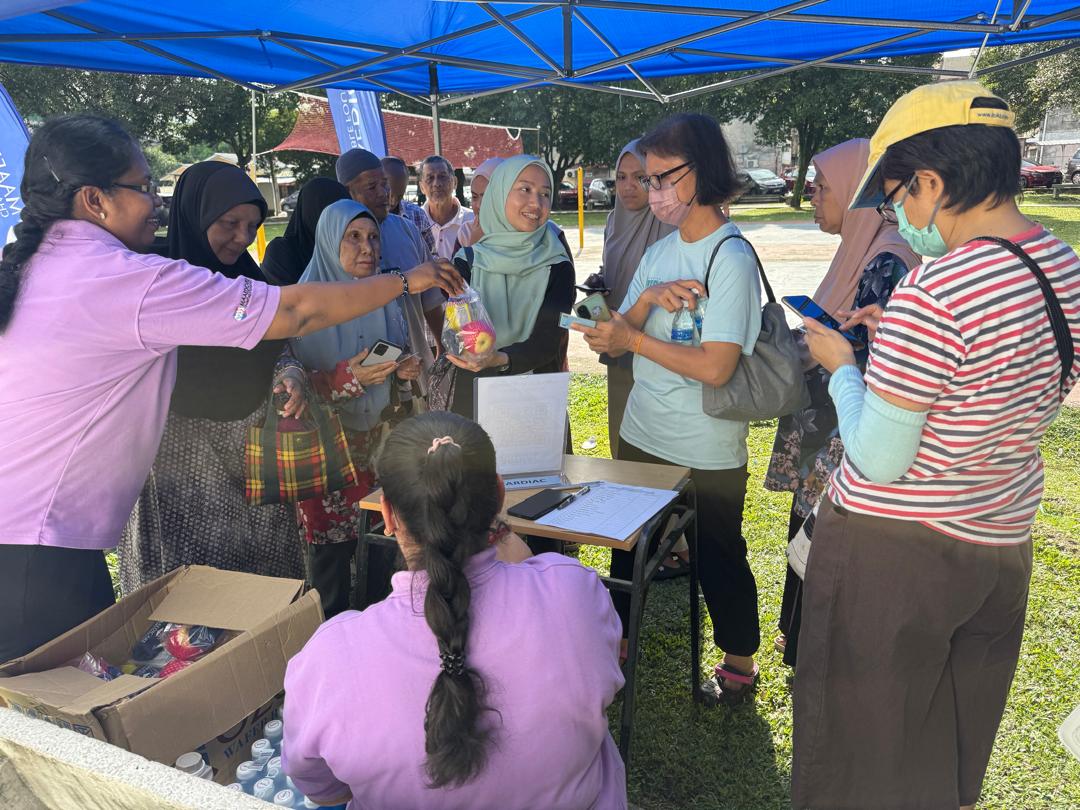
Head of Cardiac & Diagnostics at Maaedicare, Dr. Lilyany Farhana Aziz, highlighted the silent and insidious nature of kidney disease, noting that the 22% rate of decreased renal function detected during the recent screening is deeply concerning.
“Chronic kidney disease often progresses unnoticed until it reaches advanced stages, making early identification critical. With over 15.5% of Malaysians—more than five million people—living with chronic kidney disease, yet only a small fraction aware of their condition, early detection through community screenings is essential to slow disease progression,’’ she said.
She added that timely, tailored management not only improves patient outcomes but also reduces the heavy burden on families and the healthcare system.
“Each year, more than 10,000 Malaysians are newly diagnosed with end-stage renal disease requiring dialysis or transplantation, a figure expected to double by 2040 if preventive measures are not scaled up. Our kidney health screening aims to detect kidney disease early, especially among vulnerable populations, to intervene before costly and complex treatments become necessary,’’ she said.
She noted that this urgent call underscores the critical role of preventive health initiatives in combating Malaysia’s growing kidney disease epidemic and protecting the wellbeing of atrisk communities.
The kidney health screening included vital sign checks, point-of-care tests for blood glucose and cholesterol, and laboratory analyses of renal and liver function, lipid profiles, and urine tests. Each participant received confidential consultations with Maaedicare’s medical officers, ensuring personalised health advice and continuity of care beyond the event.
Community Screening Participants
Total Attendees: 102 individuals (aged between 20 and 79 years old)
Gender: 55% female, 45% male
B40 income group: 75.5% based on household income questionnaire
Decreased renal function: 22% of 102 individuals
Link: https://www.malaysiakini.com/announcement/747925

